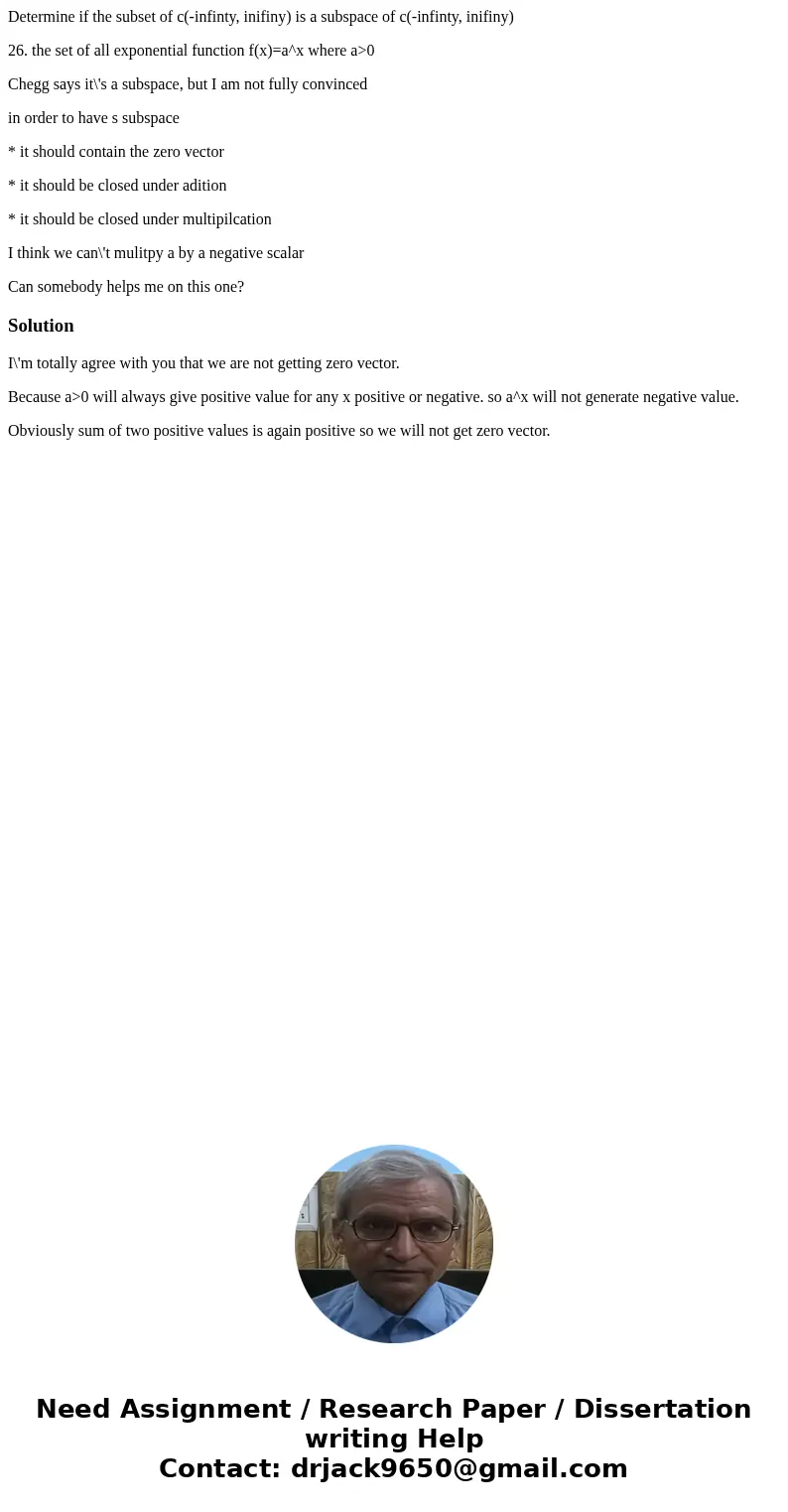Determine if the subset of cinfinty inifiny is a subspace of
Determine if the subset of c(-infinty, inifiny) is a subspace of c(-infinty, inifiny)
26. the set of all exponential function f(x)=a^x where a>0
Chegg says it\'s a subspace, but I am not fully convinced
in order to have s subspace
* it should contain the zero vector
* it should be closed under adition
* it should be closed under multipilcation
I think we can\'t mulitpy a by a negative scalar
Can somebody helps me on this one?
Solution
I\'m totally agree with you that we are not getting zero vector.
Because a>0 will always give positive value for any x positive or negative. so a^x will not generate negative value.
Obviously sum of two positive values is again positive so we will not get zero vector.

 Homework Sourse
Homework Sourse